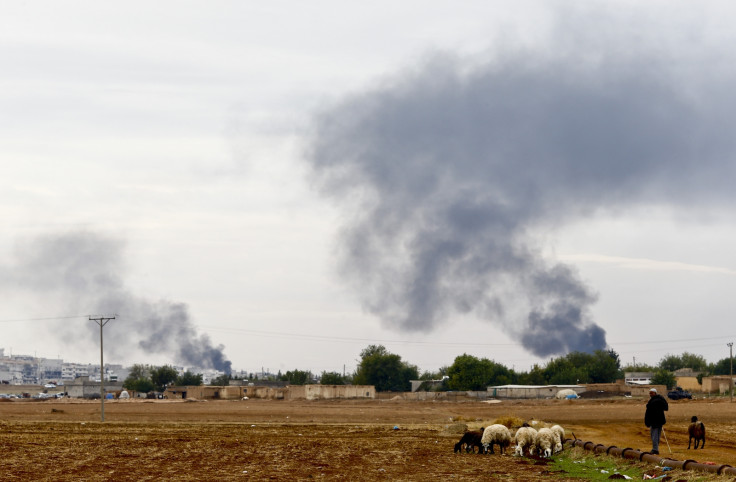US slams Turkey for unapproved airstrikes in Syria and Iraq
Erdoğan defends strikes that killed Kurdish fighters battling Isis.

In a rare move, the United States has publicly slammed Turkey after it carried out uncoordinated airstrikes in Iraq and Syria.
Turkey is one of 60 countries in the US-led coalition fighting Isis in the two countries. However, it took it upon itself on Tuesday (25 April) to launch attacks on two neighbouring areas closely separated by the Iraq-Syria border.
Rather than hit Isis positions, both strikes targeted Kurdish groups, which have often played a key role in fighting jihadists.
Colonel John Dorrian, the spokesman for the coalition's joint task force, said that Turkey notified the US less than an hour before it carried out the strikes.
"[This was] certainly not coordination as you would expect from a partner and an ally in the fight against Isis," Dorrian said in a Baghdad press conference on Wednesday.
"It was an unsafe way to conduct operations. It's a very complex battlefield here, and we just want to make sure that coordination is done so we can get these things right and prevent the types of incidents that we saw here."
The airstrikes in Syria, which struck the north east of the country, targeted the People's Protection Units (YPG) – a key player within the Syrian Democratic Forces (SDF) who are fighting Isis.
A YPG statement, seen by Reuters, said a media centre, a radio station and other communications facilities were hit, killing 20 fighters and injuring 18 others.
Turkey's strikes in Iraq hit Sinjar province, targeting the Kurdistan Workers' Party (PKK) and killing five Peshmerga fighters in the process.
Erdoğan: 'We must take steps'
The PKK, who have waged a three-decade campaign for Kurdish autonomy within Turkey, are considered a terrorist group by Turkish President Recep Tayyip Erdoğan.
"We are obliged to take measures. We must take steps," Erdoğan told Reuters after the strikes.
"We will not allow Shingal [in northeast Syria] to become a PKK base. Our operations in Shingal and northern Syria will continue."
Dorrian said there had been a "significant amount of diplomatic activity" between the US and Turkey since the strikes.
In a conference call, State Department spokesman Mark Toner told reporters: "We have expressed those concerns with the government of Turkey directly.
"These air strikes were not approved by the coalition and led to the unfortunate loss of life of our partner forces.
"We recognise their concerns about the PKK, but these kinds of actions frankly harm the coalition's efforts to go after Isis and frankly harm our partners on the ground who are conducting that fight."
© Copyright IBTimes 2025. All rights reserved.






















